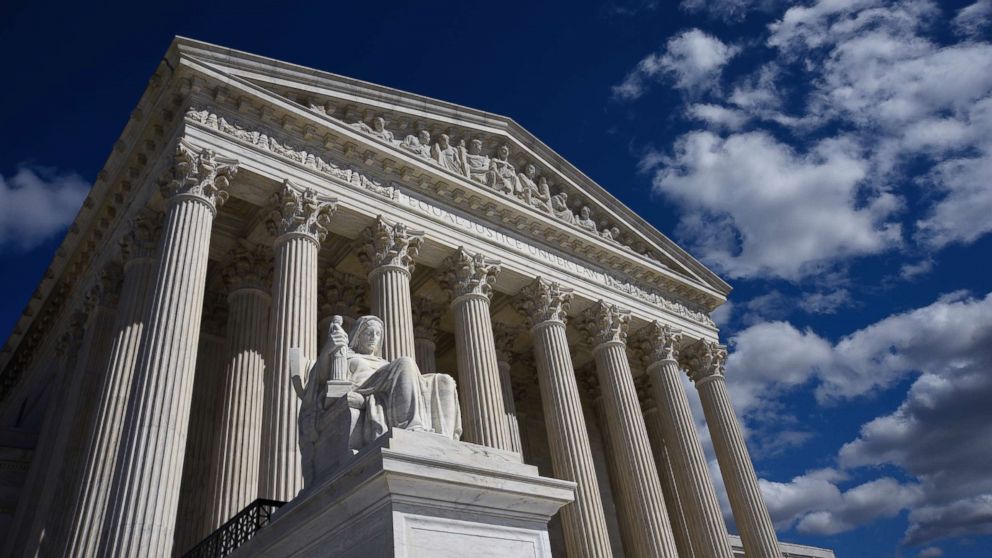


Choosing to keep the courts out of the politics of gerrymandering, the Supreme Court’s conservative majority on Thursday said there is no manageable standard for judging when partisanship goes too far in the drawing of electoral maps.
The decision effectively takes the courts out of the business of policing the politics of gerrymandering, and leaves to the states and Congress the responsibility to regulate the practice legislatively.
The narrow 5-4 ruling, on the eve of the 2020 census and the next major redrawing of the nation’s congressional maps, means gerrymandering will largely continue unabated with statistical experts from both parties drawing maps in pursuit of maximum political advantage.
"No one can accuse this Court of having a crabbed view of the reach of its competence. But we have no commission to allocate political power and influence in the absence of a constitutional directive or legal standards to guide us in the exercise of such authority," Chief Justice John Roberts wrote for the majority.
"'It is emphatically the province and duty of the judicial department to say what the law is,'" Roberts continued, quoting form the landmark case Marbury v. Madison. "In this rare circumstance, that means our duty is to say 'this is not law.'"
Roberts laid out several possible alternative remedies for critics of gerrymandering to pursue outside the courts but made clear judges should not be the ones to decide.
"We express no view on any of these pending proposals. We simply note that the avenue for reform established by the Framers, and used by Congress in the past, remains open," he said.
The court has long acknowledged that “extreme” gerrymandering is inconsistent with democratic principles, but many justices past and present have said the issue is better left to the political system to sort out.
Anti-gerrymandering advocates, who argued that gerrymandering can violated citizens’ First Amendment rights -- discriminating on the basis of speech and diluting their votes -- had pressed the court to set an enforceable standard.
The issue came before the court in the form of two cases -- one involving Republican redistricting in North Carolina and the other involving Democratic redistricting in Maryland. Lower court decisions in favor of challengers in both cases have been thrown out.
In a strongly worded dissent, Justice Elena Kagan called extremely partisan gerrymandering a "constitutional violation."
"The partisan gerrymanders in these cases deprived citizens of the most fundamental of their constitutional rights: the rights to participate equally in the political process, to join with others to advance political beliefs, and to choose their political representatives," Kagan wrote.
"If left unchecked, gerrymanders like the ones here may irreparably damage our system of government. And checking them is not beyond the courts. The majority’s abdication comes just when courts across the country, including those below, have coalesced around manageable judicial standards to resolve partisan gerrymandering claims," she said.
"In giving such gerrymanders a pass from judicial review, the majority goes tragically wrong."
Maryland Gov. Larry Hogan, a leading Republican advocate for restrictions on gerrymandering, voiced disappointment in the court’s decision.
“Gerrymandering is wrong, and both parties are guilty. It stifles real political debate, contributes to our bitter partisan polarization, and deprives citizens of meaningful choices,” Hogan said in a statement.
“The Supreme Court agrees that this is a matter for states and legislatures to address,” he added. “This is a problem we can, should, and must solve.”
Redistricting advocates across the country said they planned to step up lobbying of state legislatures to enact restraints on the use of partisan politics in drawing district boundaries.
"The Court was clear – we cannot rely on the judicial branch to provide our pathway forward. Lawmakers, not the judiciary, are the only ones that can comprehensively reform our redistricting process,” said Mary Wills Bode, a leading North Carolina advocate for redistricting reform. “With this decision, the need for legislative action has never been more urgent.”